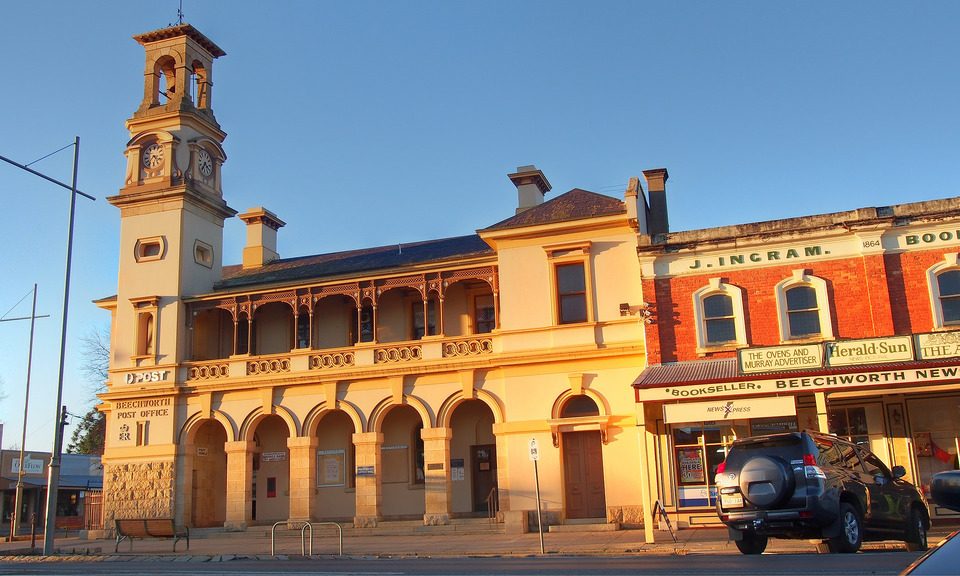Trains NOT Toll Roads: Council Opposes State Government
Ministers To Give Reasons For Policy Process To Parliament?
December 13, 2012Bess Price’s Award (?) Can It Start A Non-Political Discussion?
December 21, 2012Living in inner Melbourne as I now do, I support the concept of a rail link out to Doncaster and the eastern suburbs and NOT an East-West Toll Road/ freeway, which is now the State Government’s top transport priority! I heard the new Yarra mayor say recently that it’s up to us to do the lobbying. I now have a car sticker AND I’m voicing my concerns!
The Project
The East-West Toll Road is an 18 kilometre project that would start from the Western Ring Road in Sunshine, cut through the western suburbs and over the Maribyrnong River, then run in a tunnel under the inner northern suburbs to link with the Eastern Freeway.
What If They Spend Billions And Congestion Continues?
A real fear is that an east-west tunnel will make traffic conditions through Melbourne intolerable for years, delay much needed and long promised rail projects, and then actually fail as a transport solution.
Brisbane’s financially failed airport toll road seems to have done just this.
Toll Roads, Non Toll Roads And Traffic Forecast Optimism Biais
The federal government this year reviewed the problem and found:
“In general, the forecasting performance for toll roads in the world has been found to be poorer than for toll-free roads. There is..consistent overestimation. Australia is no exception..
Investors have recently sued several consultants over inflated traffic forecasts on toll roads in Brisbane and Sydney.”
Brian Negus, head of public policy for the RACV, said traffic modelling should not be part of any bid to run the east-west link. He says:
“A lot of forecasts of past toll road projects have been too optimistic because the winning bid is the one that forecasts the most traffic..
There needs to be an independent approach to forecasting traffic, where a figure is provided to bidders who must finance, deliver and operate the projects off those figures.”
The Two Opposing Views
FOR:
Jim Betts, Secretary of the Department of Transport says:
(i)the underground tollway linking the Eastern Freeway with CityLink and the Western Ring Road would reduce congestion on Melbourne’s roads, reinvigorate the city’s inner north.
(ii)There could be $billions in increased economic growth by continuing to shift manufacturing, freight and warehousing industries out of Melbourne’s middle suburbs and into the outer suburbs.
(iii) Alexandra Parade, at the city end of the eastern freeway, will become a beautiful boulevard and not a congested inner city street.
AGAINST:
(i)Rather than easing the current congestion, the east-west tunnel will add to it as more motorists attempt to use exits to the city, and, to find the billions needed for the project, the Government might increase tolled exit points to inner Melbourne, diverting even more traffic onto already-choked streets.
(ii)an east-west road tunnel connection could cost up to $10 Billion to build and dry up funds for public rail transport and any other major transport infrastructure projects in Victoria. A rail to Doncaster has been costed at $840 million according to Peter Newman of Infrastructure Australia.
(iii)Cr Geoff Barbour says that to protect the liveability of Melbourne, the focus needs to shift to more sustainable public transport options like Doncaster Rail.
“Yarra Council and other municipalities prefer that scarce infrastructure funds be used for a Doncaster Rail Line down the centre of the Eastern Freeway that will get commuters on the train and out of their vehicles..
Every train that runs will take 800 cars off the freeway and inner city streets…only 15% of the 120,000 vehicles using the Eastern Freeway each day will travel across the City by tunnel. More than 80% of the traffic will seek to exit to the Central Business District and inner city areas for jobs and services..
The best real solution is a rail solution.”
A Public Rally On World Carfree Day
There was a public rally in Yarra on World Carfree Day in September to send a clear message as to what the community wants.
Concerned community groups involved were:
Yarra Campaign for Action on Transport (YCAT)
The Protectors of Public Land
Carlton Residents’ Association
For more info you can contact:
Toby Walker
Senior Communications Officer
9205 5120 / 0408 954 769
Toby.Walker@yarracity.vic.gov.au
It’s an urban myth that freeways reduce congestion


